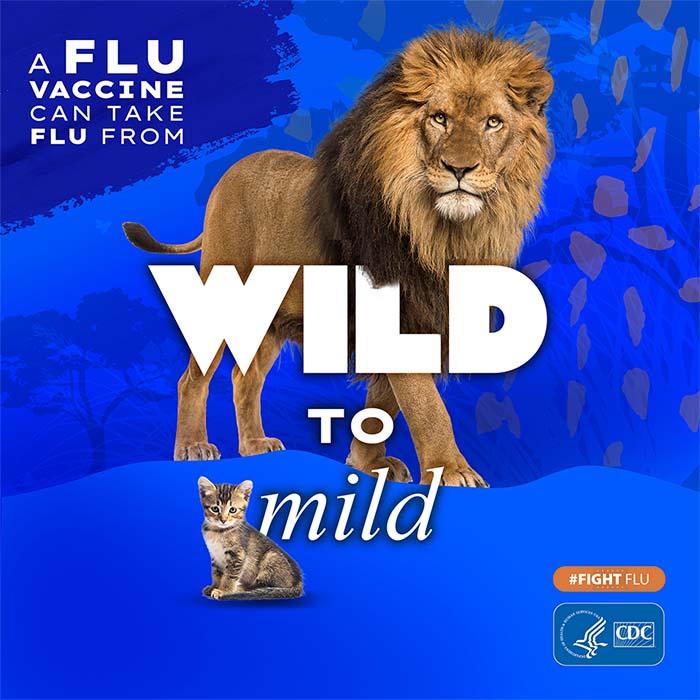A Chronic Health Condition Can Increase Your Risk
People with asthma, heart disease, diabetes, and a number of other chronic health conditions are at higher risk of developing potentially serious flu complications that can result in hospitalization or even death.
In fact, during recent flu seasons, 9 out of 10 people hospitalized with flu had at least one underlying health condition – that’s why getting an annual flu vaccine is especially important for people with certain chronic health conditions.
Coadministration of COVID-19 and Flu Vaccines: Current guidance for the use of COVID-19 vaccines indicates that the vaccines can be coadministered with other vaccines, including flu vaccines.
Facts to Know about Flu and Chronic Conditions
Adults with certain chronic conditions are at higher risk of developing serious complications from flu.
A flu vaccine reduces the risk of getting sick with flu. For people with certain chronic health conditions a flu vaccine has been shown to reduce the risk of flu-related worsening of chronic conditions and prevent flu-associated hospitalization.

People with asthma are at higher risk of developing serious flu complications, even if their asthma is mild or their symptoms are well-controlled by medication. People with asthma can develop swollen and sensitive airways, and flu can cause further inflammation of the airways and lungs.

In recent seasons, about 30% of adults hospitalized with flu reported to CDC had diabetes. Acute illnesses like flu can make it harder to control your blood sugar levels. Flu may raise your blood sugar levels, but sometimes people don’t feel like eating when they are sick and a reduced appetite can cause blood sugar levels to fall.

Among adults hospitalized with flu during recent flu seasons, heart disease was one of the most common chronic (long-term) conditions—about half of adults hospitalized with flu have heart disease. Studies have shown that flu illness is associated with an increase in heart attacks and stroke.

CKD weakens immune response, which can make it harder for the immune system to fight infections. People with CKD at any stage, people who have had a kidney transplant, and people who are undergoing dialysis treatment are all at higher risk of severe illness from flu.
Other health conditions that put people at higher risk for flu complications
- Neurologic and neurodevelopment conditions
- Blood disorders (such as sickle cell disease)
- Chronic lung disease (such as chronic obstructive pulmonary disease [COPD] and cystic fibrosis)
- Endocrine disorders (such as diabetes mellitus)
- Heart disease(such as congenital heart disease, congestive heart failure and coronary artery disease)
- Liver disorders
- Metabolic disorders (such as inherited metabolic disorders and mitochondrial disorders)
- People with a body mass index (BMI) of 40 kg/m2 or higher
- People with a weakened immune system due to disease (such as people with HIV or AIDS, or some cancers such as leukemia) or medications (such as those receiving chemotherapy or radiation treatment for cancer, or persons with chronic conditions requiring chronic corticosteroids or other drugs that suppress the immune system)
- People who have had a stroke
- People with certain disabilities—especially those who may have trouble with muscle function, lung function, or difficulty coughing, swallowing, or clearing fluids from their airways.
A full list of health and age factors that are known to increase a person’s risk of getting serious complications from flu can be found on Who is at Higher Risk of Flu Complications
Flu Vaccine Finder

Find flu vaccines in your area.
Everyone 6 months of age and older needs a flu vaccine.
